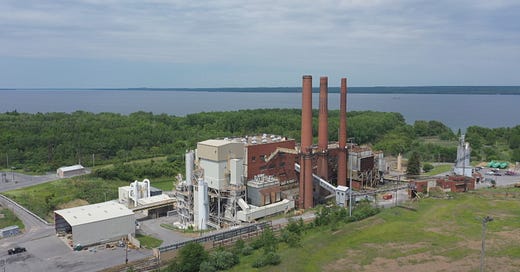This Tuesday, the New York State Assembly’s Environmental Conservation Committee voted to advance a proposal that would put a moratorium on Proof-of-Work crypto mining for two years.
The bill would still require passage by the entire state Assembly and the Senate, and then be signed into law by Governor Kathy Hochul. A companion piece of legislation currently awaits movement in the state Senate’s Environmental Committee.
The Why’s
New York State’s Climate Leadership and Community Protection Act mandates that greenhouse gas emissions be cut by 85% by the year 2050. The state is looking at any way possible to reduce or eliminate the use of fossil fuels, and Bitcoin mining is one of the main targets.
More specifically, New York State currently hosts about twenty percent of America’s Bitcoin mining facilities, so it’s becoming a major industry in the state. In the Finger Lakes region of central New York, Greenidge Generation operates a mining facility at a natural gas power plant with over 20,000 mining rigs. Another 28,000 miners are planned for later this year. The plant currently employs 48 workers.
At issue is the water that Greenidge uses to cool its mining facility, which comes from Seneca Lake. After the lake water is used to cool the mining rigs, the water is expelled back into Seneca Lake at temperatures around ninety degrees. Environmental activists in the area are concerned with the effect the hot water may have on the lake’s fish population and also with the potential effects on the air quality.
What This Means
The proposed two-year moratorium would allow the New York State Department of Environmental Conservation to analyze the following factors:
Number and location of PoW mining operations.
Amount of electricity consumed and type of fuels used.
Amount of water usage, and water and air quality.
Social and economic costs and benefits.
Climate activists argue that Bitcoin mining uses too much energy, fossil fuels in particular, and could potentially damage New York State’s lakes, rivers, water quality and air quality. It should be noted that the ban would not effect mining facilities that are operating with 100% renewable power sources, such as hydro, solar and wind.
Proof-of-Work mining uses tremendous computing power to verify all transactions on the crypto blockchains. It’s the process that makes Bitcoin’s network the most secure and accurate among all cryptocurrencies. Environmental activists argue that Proof-of-Stake mining can perform the same functions as PoW while consuming far less power.
What the Bitcoin Mining Proponents Say
Bitcoin mining advocates say that most mining is now done using renewables, and it’s increasing all the time. Currently, an estimated 60-70% of Bitcoin mining in the US is done with renewable energy sources. Miners have a profit motive and of course want to use the lowest cost energy available. Naturally, more and more mining will shift to renewables. The industry is evolving and proponents say a moratorium is not needed.
There are limitations to Proof-of-Stake mining. This PoS process, which does use much less energy, has never been scaled to the size of Bitcoin or Ethereum. The systems are not as decentralized or as secure as the Proof-of-Work systems. Thus, it’s like comparing apples and oranges.
Proof-of-Stake systems require far less equipment to operate and thus there are far fewer barriers to entry. What this means is that it could potentially be much easier to infiltrate or corrupt the system or to perform fraudulent transactions. At this point, it is clear that PoW is much more secure than PoS.
Bitcoin miners who are experienced in the process are reluctant to allow politicians and activists to make these kinds of decisions about their industry. There are very few elected officials who have done the research and truly understand all of the workings of Bitcoin mining.
New York State may be missing out on a great opportunity to be a home to new technology, a whole new industry. The Empire State’s leaders espouse to wanting to be business-friendly. But the state’s tax burdens and regulatory issues seem to indicate otherwise. If the cryptocurrency industry is driven out of New York, it will just go elsewhere. When China banned crypto mining, the industry picked up and moved, to other countries including the US. Mining activity soon got up to its previous capacity and surpassed it.
New York and other states need to learn to work with the crypto industry leaders and develop a sensible framework to both regulate and foster this new industry. All indications are that crypto is here to stay.
Link to previous article on Mechanicville Hydro Plant Mining:
World's Oldest Working Hydro Plant Now Mining Bitcoin



Issue Number 50 of The Bitcoin Files!
Not an April Fools Joke!
Many Thanks to all of you loyal subscribers!
Issue No. 50, April 1, 2022
Rick Mulvey is a CPA, forensic accountant and crypto consultant. He writes about all things Bitcoin, and yells at the Yankees and Giants. He also runs marathons and makes wine, neither professionally.
Follow on Twitter! The Bitcoin Files Newsletter






